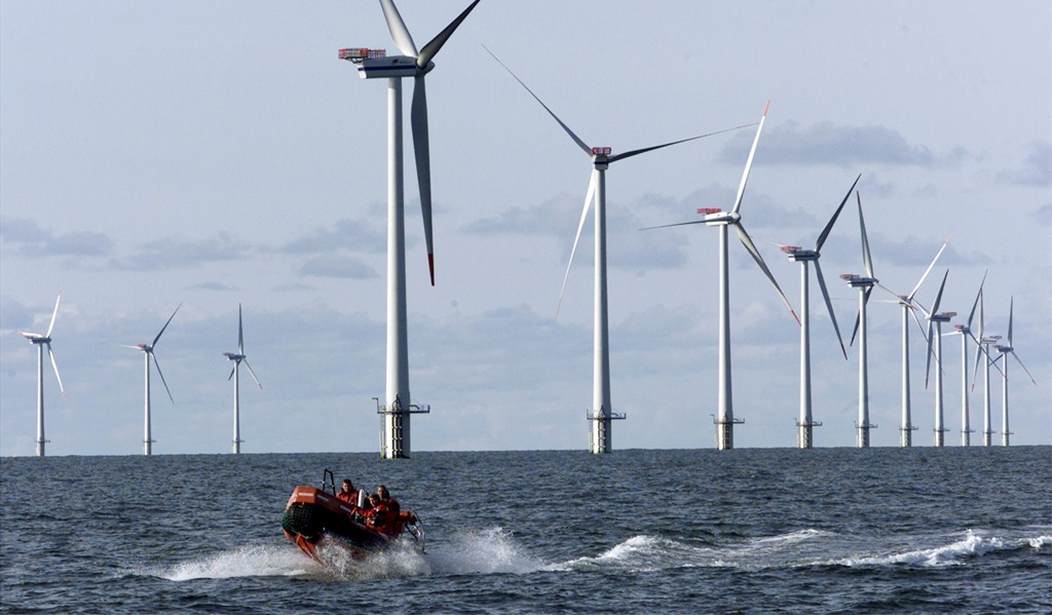A new Monmouth University poll doesn’t portend well for climate alarmists: The climate crisis narrative, unsurprisingly, isn’t selling well - or at all - with the American people.
Monmouth explained, “Less than half (46 percent) of the American public sees climate change as a very serious problem.”
This is down for every voting demographic group–Republicans, independents, and even Democrats. And the survey found that support for government action to fight climate change - like the Inflation Reduction Act and Biden administration net-zero directives - also has fallen.
The poll also observed that young people - who generally buy this narrative - are increasingly rejecting the climate crisis narrative. Only 50 percent of respondents ages 18 to 34 said climate change is a serious problem–down from 67 percent in 2021.
We have Greta Thunberg to thank for this shift, because her doomsday prediction didn’t come true last year. Alarmists John Kerry and Al Gore deserve our kudos too.
Monmouth, however, isn’t the only poll to show diminished interest in the climate issue.
NBC reported last month that climate change isn’t a top issue for voters. Last year, climate ranked 17th of 21 of important policy issues. Voters in battleground states rank the economy and inflation - not climate change - as their top concerns. Immigration has also shot up as a major issue, as well. A recent Gallup poll found that energy and environment ranked near the bottom of voter priorities. Even the lefty Data for Progress reported climate change is a low-priority item going into November. Ouch!
Recommended
Last year, Pew Research Center did the unthinkable and polled Americans - particularly climate skeptics - about their hesitation to buy the climate crisis narrative. The results were stunning and deserve more coverage. The polling research firm noted, “Most of the 32 interviewees were in agreement that the Earth’s climate is changing, but they typically explained these changes as part of natural patterns over time, with humans described as having little control over these changes. Two interviewees expressed extreme skepticism, calling climate change a “hoax.””
It’s only natural to question the climate crisis narrative pushed by the environmental Left. Its biggest proponents fearmonger about continued fossil fuel usage, yet can’t abandon their carbon intensive lifestyle. They make lofty predictions about the world ending, yet those predictions never materialize. We’re told we have to ditch our gas guzzling cars and embrace electric vehicles to save the planet, yet EVs are reportedly worse for the environment than previously believed.
When push comes to shove, the American public isn’t willing to pony up money to support environmental initiatives that claim to address or combat climate change. Why? They see a poor return-on-investment (ROI) and no benefit to the environment.
A 2019 AP-NORC poll revealed the majority of Americans - 68 percent - aren’t willing to pay an additional $10 per month on their electric bills for this reason. Moreover, people greatly dislike the government forcing behaviors - EVs or red meat phaseouts - on them and don’t base their eating habits on climate or environmental factors.
The Biden administration has all but declared a climate emergency–a decision that would invite higher energy prices and continued reliance on polluting nations. But it openly made climate alarmism a centerpiece of their agenda with net-zero on Day One. These include directives to mandate EV adoption, fossil fuel phaseouts, and require Environmental, Social, and Governance (ESG) posturing and climate change considerations into rulemaking–even on public lands that welcome hunting and fishing as management tools–for example. But no matter how many directives they implement or billions in federal spending they waste through so-called “green” initiatives, most Americans don’t appear to be buying what they’re selling.
What environmental message actually would resonate with conservatives, independents, and swayable Democrats? One that is rooted in true conservation- the wise use and management of natural resources. Energy policy that encourages coal, oil, natural gas, nuclear, geothermal, and hydroelectric power - not an emphasis on unreliable, intermittent solar and wind - is what most people crave and want. Encouraging hunting and fishing, the biggest funders of conservation, on public lands - unlike what the Biden administration is doing - is classically environmental as well. And divorcing climate from most energy and conservation issues is scientifically and practically necessary since correlation, unsurprisingly, doesn’t imply causation.
Net-zero, climate directives won’t ever resonate with most Americans en masse because they are impractical and dangerous. Not to mention adjacent ESG posturing - or environmental inflation (en-flation) - is primarily fueling our inflation woes.
Top-down climate directives will turn most Americans off from true conservation efforts and classical environmentalism. That’s why they are rejecting climate alarmism and prioritizing more tangible matters that directly impact their lives.

























Join the conversation as a VIP Member